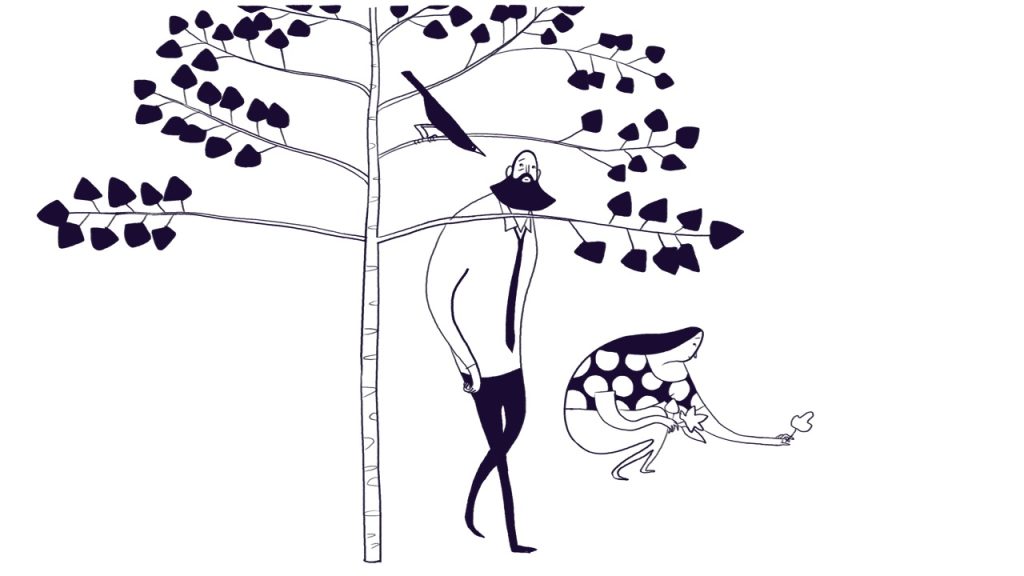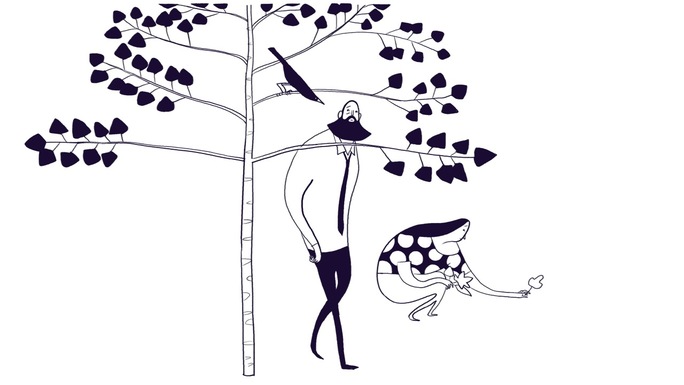Practicing Forgiveness With A Loved One

If you are someone whose loved one has addiction problems, you have most likely been through the ringer. You could fill up books with the difficult times and emotions you’ve been through. And if you are reading this post, chances are you are still in the thick of it. If this is the case, and you are currently struggling with desperation, anger, and other difficult emotions, I would like you to take a minute to think about forgiveness.
*This post originally appeared on our Member Site blog, where experts respond to members’ questions and concerns. To take advantage of our current special offer and get full access to the Allies in Recovery eLearning program for families, click here.

Illustration © Eleanor Davis
Contemplating forgiveness
By forgiveness, I don’t mean anything that someone has to beg or plead out of you.
I also don’t mean condoning behaviors that are harming you or others.
And last, I don’t mean erasing or negating the pain of what you’ve been through.
So, what do I mean by forgiveness, then?
Some words that come to mind when I contemplate forgiveness: release … flow … healing …..
Forgiving someone, especially someone whose behavior evokes very painful emotions in you, can create a very beneficial release. A release of anger, or other feelings you don’t need to hold onto, because they’re hurting you more than anyone. From there, you are freeing up all sorts of energy within you that can start flowing again, and be put to good use — taking better care of yourself, for starters. And the better you feel, the lighter your load, the easier it will be to guide your loved one towards the help and healing that they are in such bad need of.
On the nature of addiction
No one chooses the path of addiction. No one plunges into that dark place on purpose, knowing that clawing their way out will be a supreme trial. This is not about your loved one being willful or lazy.
Addiction is affected by our genes, and has also been linked to post-traumatic stress disorder (80 – 90% of people with addictions have a history of trauma).
Addiction to drugs or alcohol causes changes in the chemistry of the brain, which cause your loved one to be driven by cravings.
The chemistry of addiction also makes withdrawl from the substance an incredibly uncomfortable, and thus undesirable, experience.
It is important to understand that the imbalances in the brain caused by addiction are similar to mental illness — like schizophrenia or depression — and that this is not an enjoyable place to be, for anyone. People suffering from addiction need our compassion, and our forgiveness.
What does forgiveness look like?
How does one go about doing it? Does it happen out loud, or quietly, on the inside? And what if I’m not ready to forgive my loved one?
Each of us has a different story. Those of us who have addicted loved ones have an ongoing collection of pain, anger, betrayals, disappointments and so on. And that collection, that suitcase laden with heaviness, is weighing us down.
Forgiveness for some might mean taking ONE greivance out of that suitcase and tossing it into the tide. Agreeing to let go of just one thing. This is progress.
Forgiveness for others might mean writing a letter to your loved one in your journal (for Allies in Recovery members, why not in the sanctuary of your Allies in Recovery private journal?) in which you let them know that you love them and do not blame them for the mess they’re in.
Forgiveness for others might simply look like you smiling at yourself in the mirror — or you smiling at your loved one the next time you see them sober.
Moving from forgiveness on to positivity
In other words: accepting that this difficult situation is not your fault. It’s not their fault. In fact, it’s nobody’s fault. The less blame you direct at yourself, or at your loved one, the more room there is for positivity. And a positive outlook, though it may often feel out of reach, is going to be the name of the game as you consider next moves in helping your loved one.
In fact, the word “forgiveness,” it seems to me, contains a natural dose of positivity. In forgiving, I let go of my determination to stay angry, to blame, to feel victimized. And in doing so, I make space in my heart and my mind for new growth, for new possibilities, for new horizons.
I am suggesting that you consider forgiveness as an important step along your path. The path that will lead you to reconnect with the parts of you that your loved one is going to need as they move towards getting help. And that you will need, all throughout this journey, to keep yourself well and to be a bright, unwavering North Star for your loved one.
Join the Allies in Recovery member site today for full, unlimited access to our e-learning platform, expert guidance, and the chance to connect with others in your situation. Learn more here.
